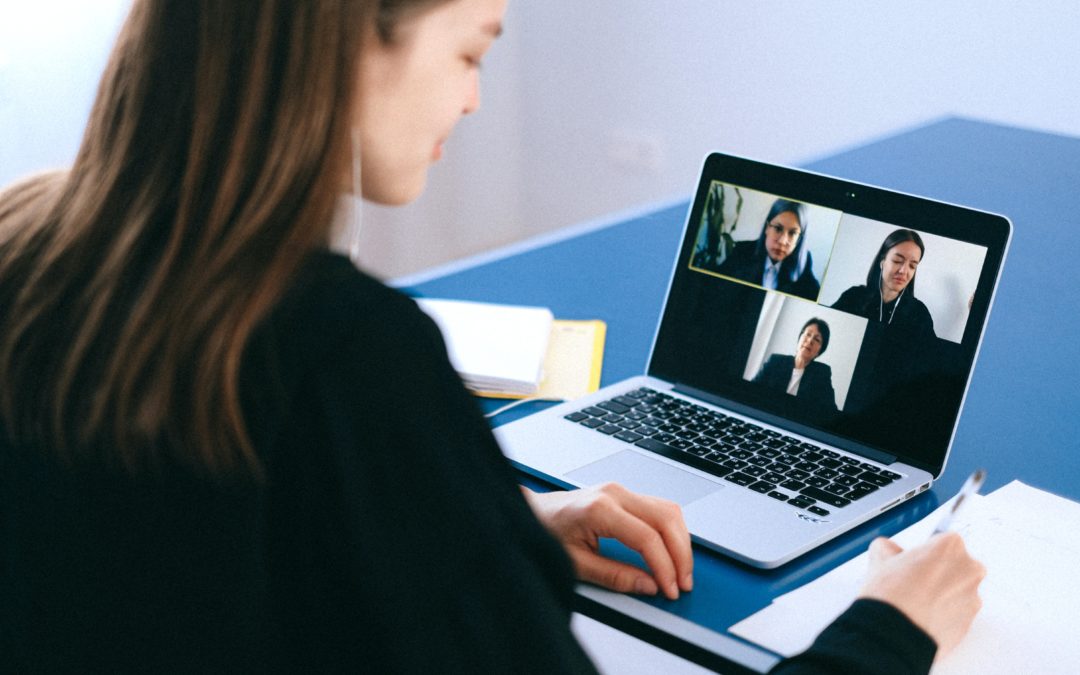Since the pandemic hit, video conferencing has been a critical component in keeping people employed and connected.
Platforms such as Zoom, Microsoft Teams, or Skype enable us to hold work meetings remotely, and catch up with friends and family in a way that feels much more personal than a text message or phone call. For all its benefits, however, our reliance on video conferencing has actually created a new problem: Zoom fatigue.
If you are wondering why you seem so exhausted after a work day, you are not alone. With videoconferencing replacing face-to-face meetings for over a year now, many are experiencing what has become known as Zoom fatigue. This is an unofficial diagnosis that refers to the tiredness, worry, or burnout associated with overusing virtual platforms of communication.
When we are online, there is a different quality to our attention. We tend to be hyper-focused on the few available cues that we would normally gather from a full range of available body language. Video conferencing forces us to work harder to interpret non-verbal communication. There is also the experience of seeing ourselves on screen, which is not something we generally deal with when we interact with people in person. This can create a feeling of being on stage, and requires more energy to put on a performance.
Research has found that the amount of eye contact we engage in on video chats—and the size of the faces on screen—is unnatural. During in-person meetings, people look at the speaker, take notes, look around, etc. But on video conferences, everyone is looking at everyone constantly, which is intense! The nature of these meetings also requires people to remain seated, inhibiting mobility which has been found to reduce cognitive performance.
Zoom fatigue can be a general feeling of exhaustion, or it can impact your physical, emotional, social, or motivational health. The most common symptoms are:
- Feeling tired between video conferences
- Feeling more tired at the end of the workday than usual
- Finding your attention wandering during a meeting
- Regular headaches
- Constant feelings of exhaustion
For better or worse, video conferencing is here to stay. Fortunately, there are things that you can do to not feel so exhausted at the end of the day, and to take back some control.
- Give yourself a digital detox during the day where you put away your phone and computer and focus on something else. Take a walk or read a book. Give your brain some time to focus on non-digital stimulation.
- Make sure that your meetings have an end time, and stick to it.
- If it is not mandatory, turn your video off. By only focusing on people’s voices, your brain does not have to work quite as hard. You could also use wireless headphones that will enable you to get up and walk around during the call.
- Adjust your computer settings to make the faces smaller. Some settings also allow you to “hide self” so you are seen by others, but not yourself.
- Resist the urge to multitask during a video conference. It might be tempting to get other work done while on a call, but switching between tasks can actually reduce your productivity.
- Use email or chat messages to cut down on unnecessary meetings. If information can be shared outside of a video conference, don’t feel obligated to send out that video link.
Some of these suggestions might be hard to follow at first, but taking these steps can help prevent you from feeling exhausted at the end of the day. It’s been tiring enough trying to adapt to the “new normal,” so try to make video conferencing a little easier on yourself!
Of course, excessive video conferencing isn’t always to blame for fatigue, headaches, and an inability to concentrate. If you are experiencing these symptoms, speaking with your primary care or mental healthcare provider could help rule out depression—or help you find a path towards the treatment you need to maintain your emotional wellbeing.
At Vitalitas Denver, we have seen an influx in the amount of patients who are seeking treatment for depression since the onset of the pandemic, and the increased exposure to digital media and video conferencing certainly aren’t helping. Fortunately, we are.
Contact Vitalitas Denver today to learn more about the innovative and effective depression treatment options available at our Colorado area ketamine clinics. Hope is always an option.


